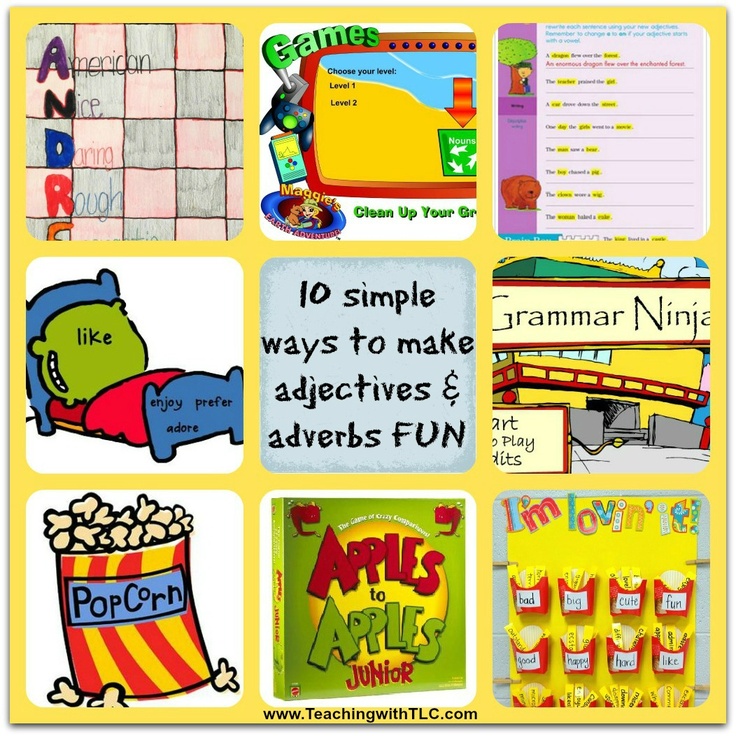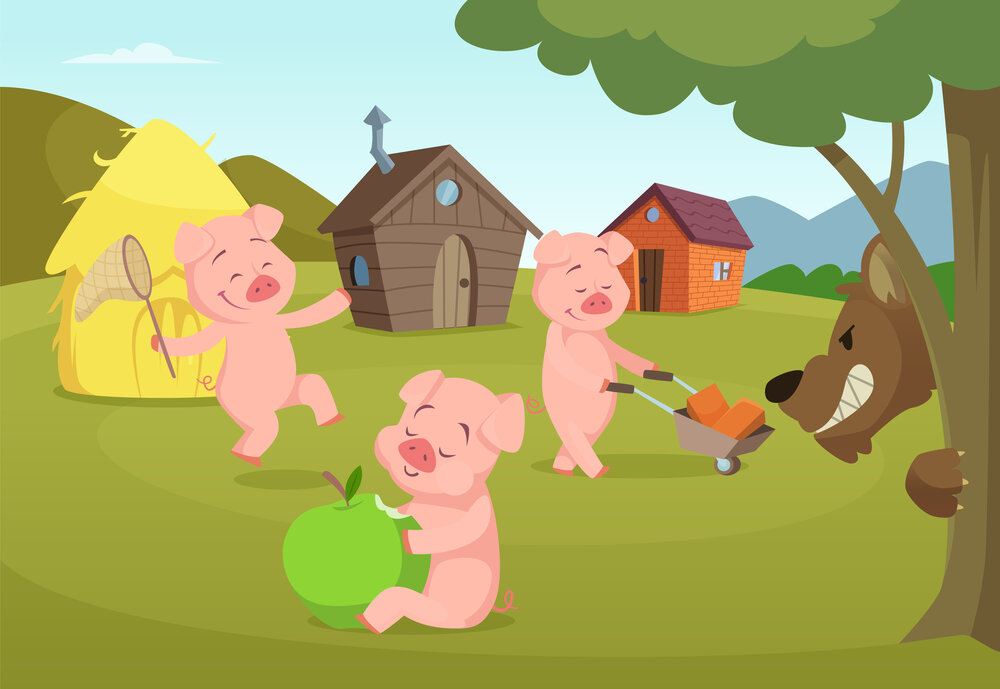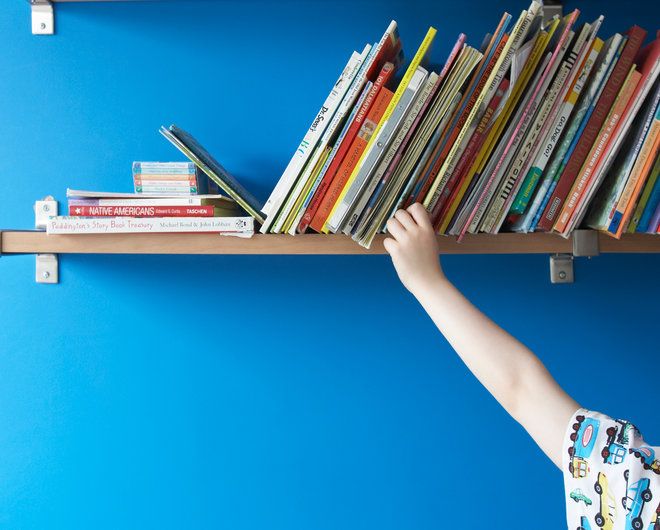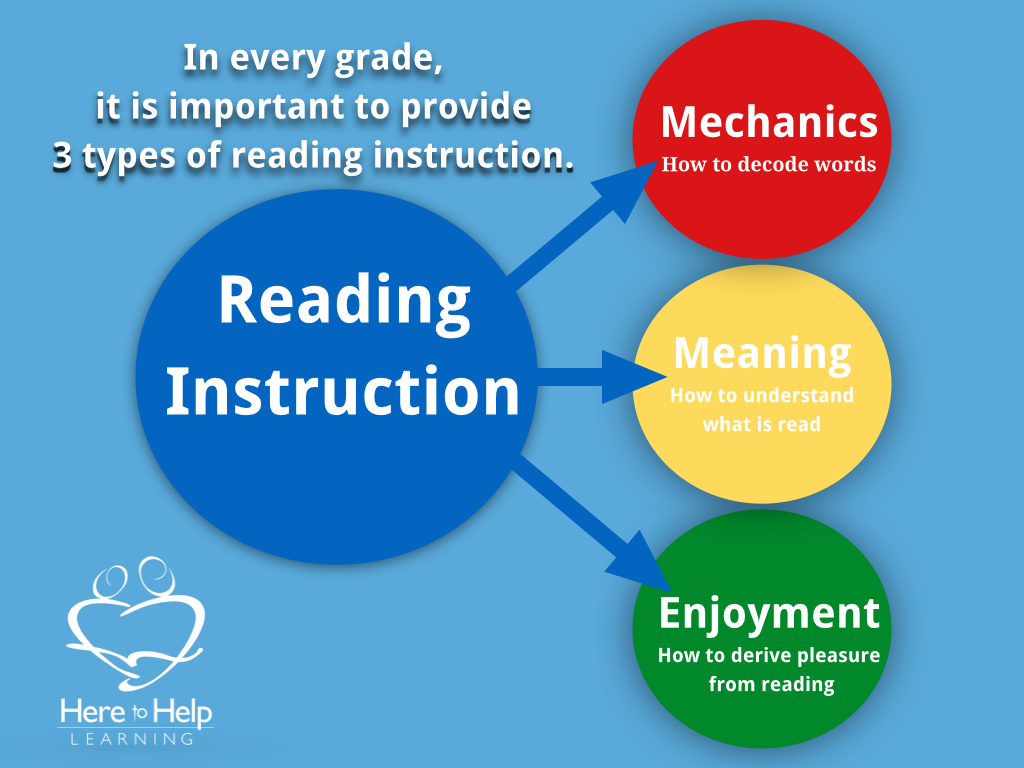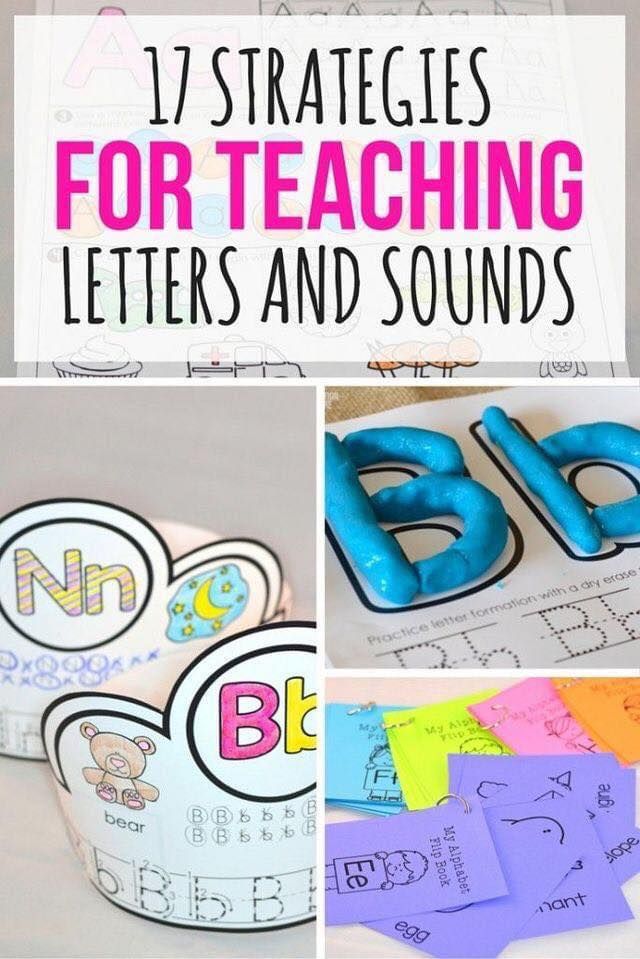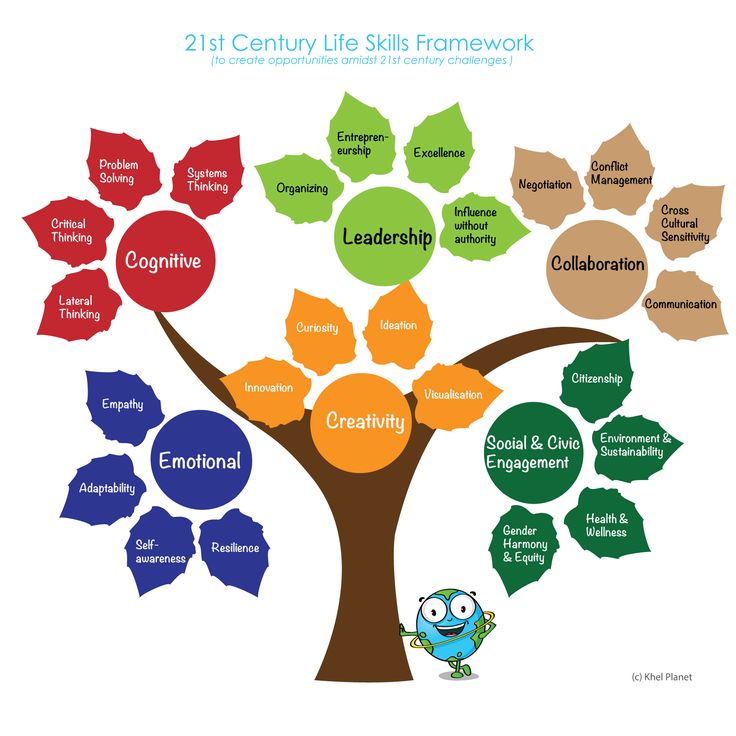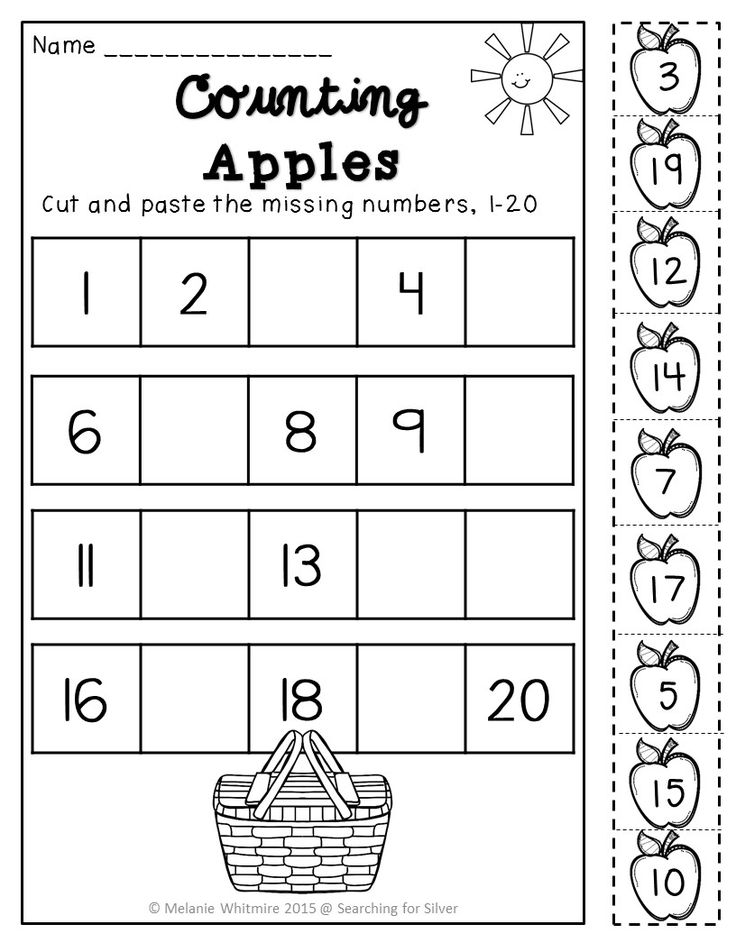Fun adjective games
11 Classroom Games for Teaching Kids About Adjectives
Traditional language teaching often focuses on repetition and rote learning, but children want to learn through experience and engagement. Discover how you can make learning fun with these exciting and easy adjective-based language games.
1. Introduce yourself
A good game to play at the start of the school year, the teacher can go first and then ask students to do the same. Standing at the front of the classroom, students introduce themselves to the class by describing qualities about themselves – for example, “I’m curious, cheerful and tall.”
2. Adjective match
Create a deck of cards with different adjectives written on each card. You’ll also need some images (pictures from magazines, travel brochures etc) that can be described by adjectives. Now here’s how the game works:
- Each player chooses an image.
- Deal four cards to each player.
- If the player can describe the image with all four cards they win.
If not, then discard a card and choose a new card from the pile.
- Play continues until a winner is found.
3. Noun showdown
Divide the class into two or more teams, then write a noun on the board or show it as an image. Teams have a minute to write down as many adjectives as they can. Teams get a point for every adjective that is appropriate. A fast, fun game that students love!
4. Show and tell
Students bring objects from home and describe them front of the class. The teacher takes notes of all of the different adjectives the student uses to describe the object. These can be displayed around the classroom later or the teacher can quiz the class on what adjectives were used after each presentation.
5. Describing the day
Like show and tell, have students come to the front of the class and use adjectives to describe their day so far. Lead them with prompts like:
- Describe your morning so far.
- Describe what you had for lunch.

- Tell us about your maths class.
Try to guide students into giving descriptive opinions. Afterwards, quiz the class on aspects of the tale. “What adjectives did Rachel use to describe maths class?” etc.
6. Riddle game using adjectives
This is a fun game that tests student’s creativity and understanding using adjectives. Have students come up with ‘Who am I?’ riddles using adjectives to describe animals, people, vehicles and other nouns. Have them read the riddles out to the class (or in small groups) and see who can solve the riddle.
7. Circling the adjectives on favourite stories
There are a few ways to do this fun game that can be played in a group or during quiet time. Teachers can print out samples from student’s favourite stories or write them on the board. Encourage students to read through the story, circling adjectives as they go. The best thing about this exercise is its versatility, easily slipping into any lesson plan.
8.
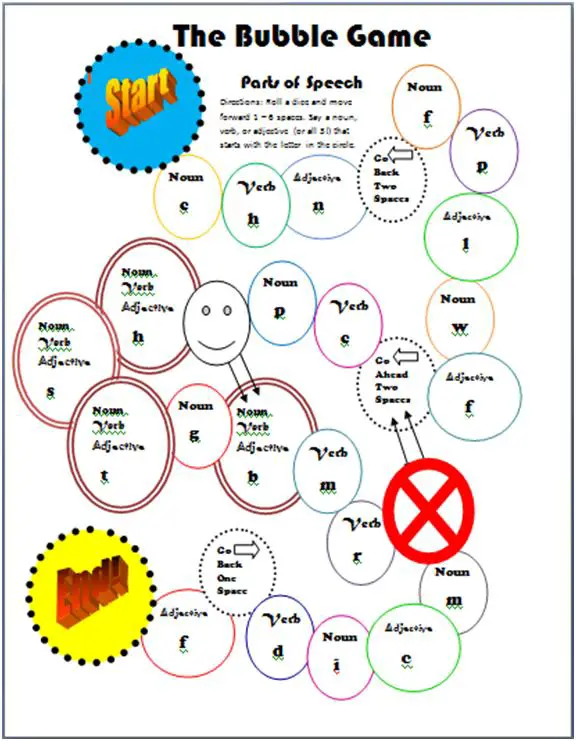 Lucky dip
Lucky dipThe teacher places different objects in a bag. Students are invited to come up and feel one of the objects, describing what it feels like. The rest of the class tries to guess what the object is based on the adjectives used.
9. Fishing for adjectives
This game requires a bit of prep, but is hours of fun and can be reused for other word groups like nouns and verbs. You’ll need a deck of flashcards, some magnets and a fishing rod. Here’s how to play:
- Write a noun, adjective or verb on each card. The words need to be clearly readable from a short distance.
- Attach paper clips to each card.
- Attach another magnetic clip to a children’s fishing rod.
- Scatter cards face up on the floor.
Encourage students to ‘fish’ the adjectives from the pile, with students taking turns controlling the rod. They’ll need to distinguish between the adjectives and non-adjectives before they can fish one out. Once they correctly fish out an adjective, you could also ask them to name an object that could be described using that word.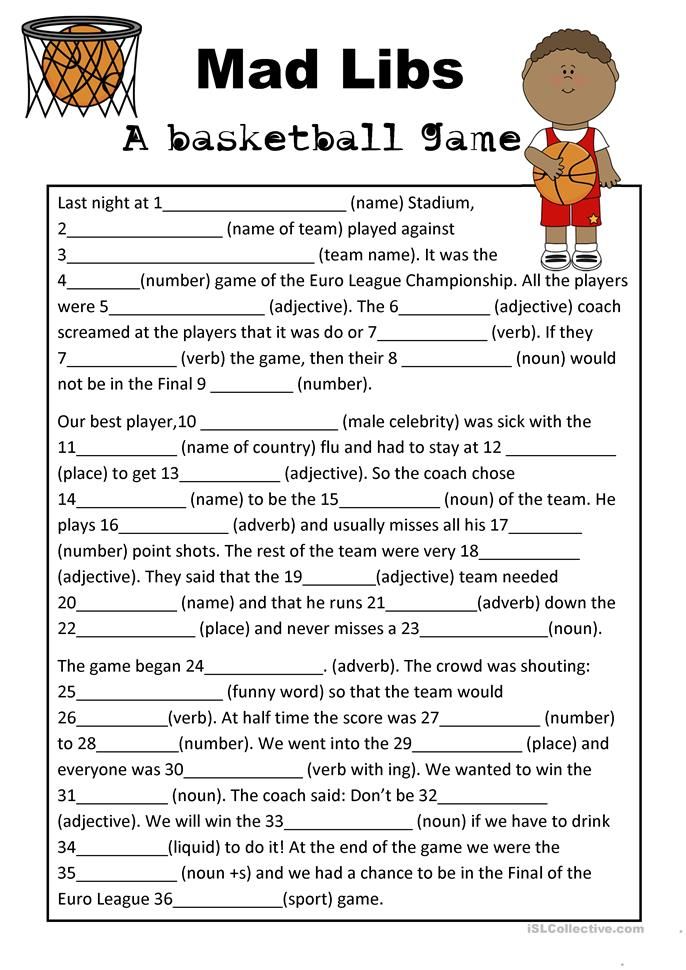
10. Describing your partner
Pair students up and ask them to describe each other. This can be a great exercise and also a great activity for teaching children positive social interactions, focusing on positive aspects of their classmates and developing empathy and sensitivity to one another.
11. Describing people
From a magazine collection, ask students to use adjectives in describing the various people on the pages. Try to vary the magazines and subjects. You can also move away from people to things (cars, boats etc).
Keeping students engaged
Educational games are effective because often students don’t even realise they’re learning while playing. Many are also versatile and can be tweaked or repurposed to use for other subject areas. Through games like these you can create a fun learning environment for your students that’ll help them pick up the difference between adjectives and other kinds of words in no time.
7 Awesome Adjective Games
Children and adults alike will be happier to learn when they are having fun: that is why adjective games for kids are a really effective way to teach adjectives in the classroom.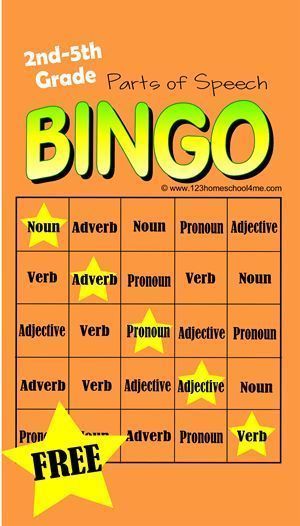 Students will develop a stronger vocabulary when learning is a fun process and they can frequently use their newly learned adjectives.
Students will develop a stronger vocabulary when learning is a fun process and they can frequently use their newly learned adjectives.
Kids playing word games
Advertisement
1. Fifty Awesome Adjectives
This is a great game for kids to expand their vocabulary and improve their creative writing skills.
- Ask students to bring in a picture of one of their favorite places, perhaps a memorable vacation spot, their home, or a relative's house.
- Give them a piece of paper and ask them to write sentences describing the place using as many adjectives as possible.
- Encourage them to be creative in their descriptions. Instead of a bland statement like, "There are four trees in the garden," you want something like, "There are four tall, twisty trees with thick, bushy, green leaves in the shady garden." The goal is to include 50 different adjectives in their description of the place.
- Once that's done, ask them to trade descriptions with one another.
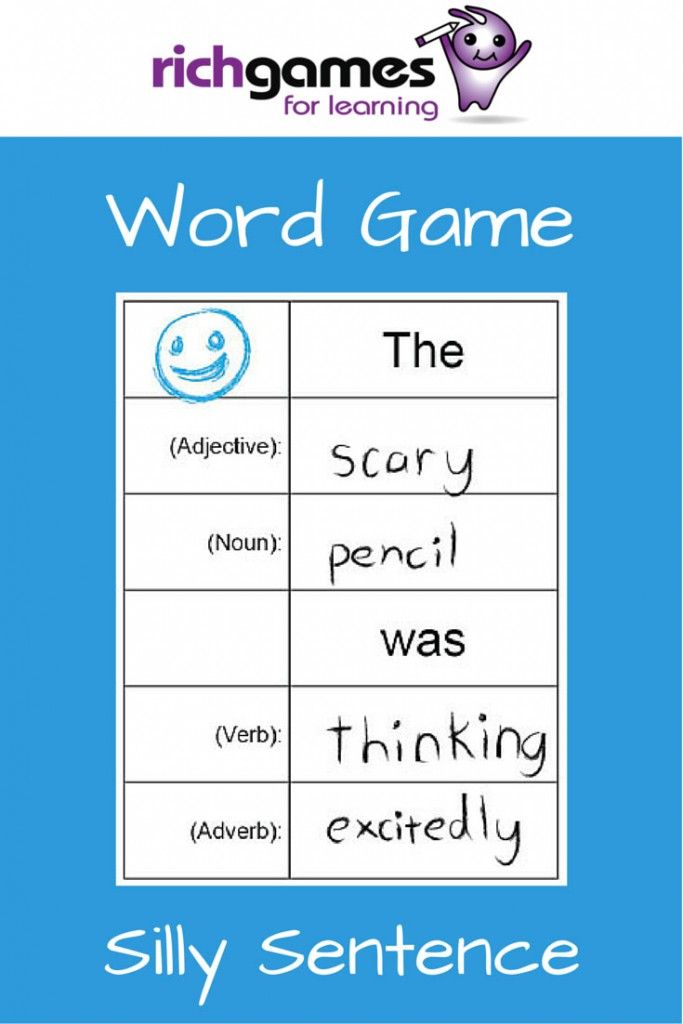
- Ask each student to mark each adjective they find with a highlighter. If the other student finds at least 50 awesome adjectives, they can put a sticker on the description.
- Put the descriptions, along with the pictures, on a bulletin board in the room. Students can be proud of their achievements and see the photos of their favorite places often.
If someone is truly stuck and cannot find enough adjectives, you can allow them to look up new words using a thesaurus so their vocabulary expands. That way, everyone wins, and students grow!
2. Alphabetical Adjectives
Start at the beginning of the alphabet, and have your class brainstorm as many adjectives as they can that begin with each letter.
To make the most of this learning game:
- Keep a record of how many they come up with for each letter. When you play again, you can determine if your students are coming up with more adjectives than they could last time.
- Play this game with a different letter every day.
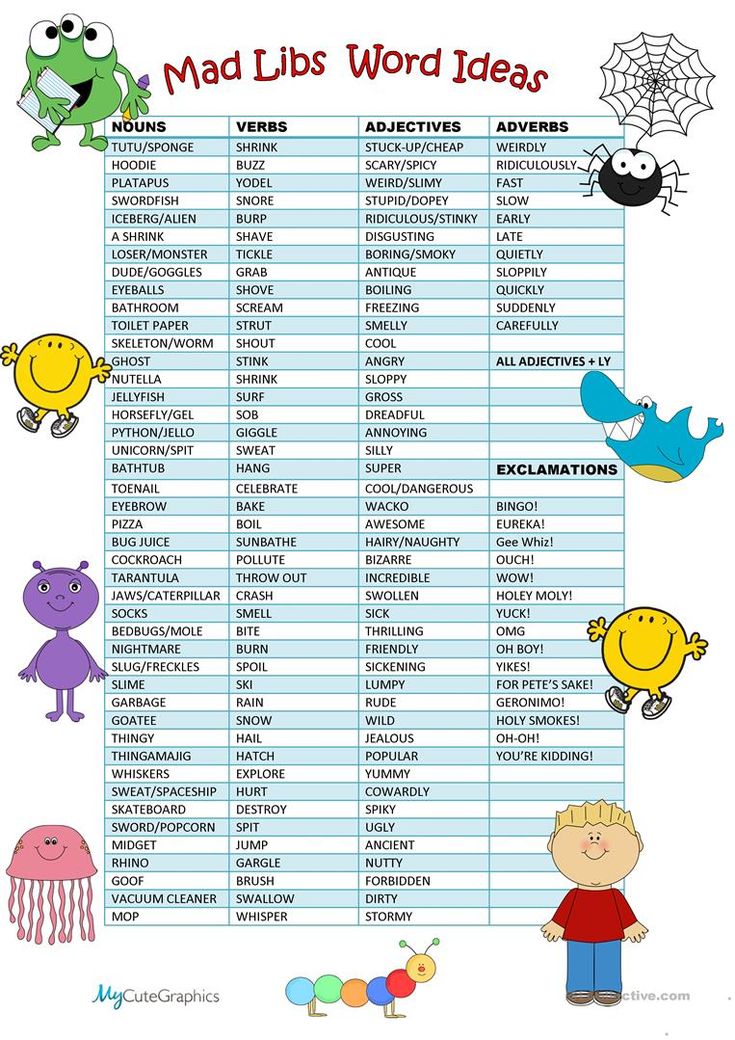
- For inspiration, you might choose stories or classroom objects that the students can describe.
Once your students have run out of adjectives, offer a few more of your own which they have not listed: you can have a list ready so that you are prepared to help them out.
3. Adjective Battleship
Bring in groups of small objects that are similar in some ways but different in others. For example, bring in toy cars that are all the same color but different shapes. Or, you might bring in three green apples that are all different sizes.
Break students into pairs, and give each pair a set of three objects. One student secretly picks an object, and the other student guesses which one the first student chose. The second student must ask questions that use adjectives. For example:
- Is it big?
- Is it round?
- Is the doll's face happy?
- Does the doll look confused?
This will give students the opportunity to become more accurate in describing things.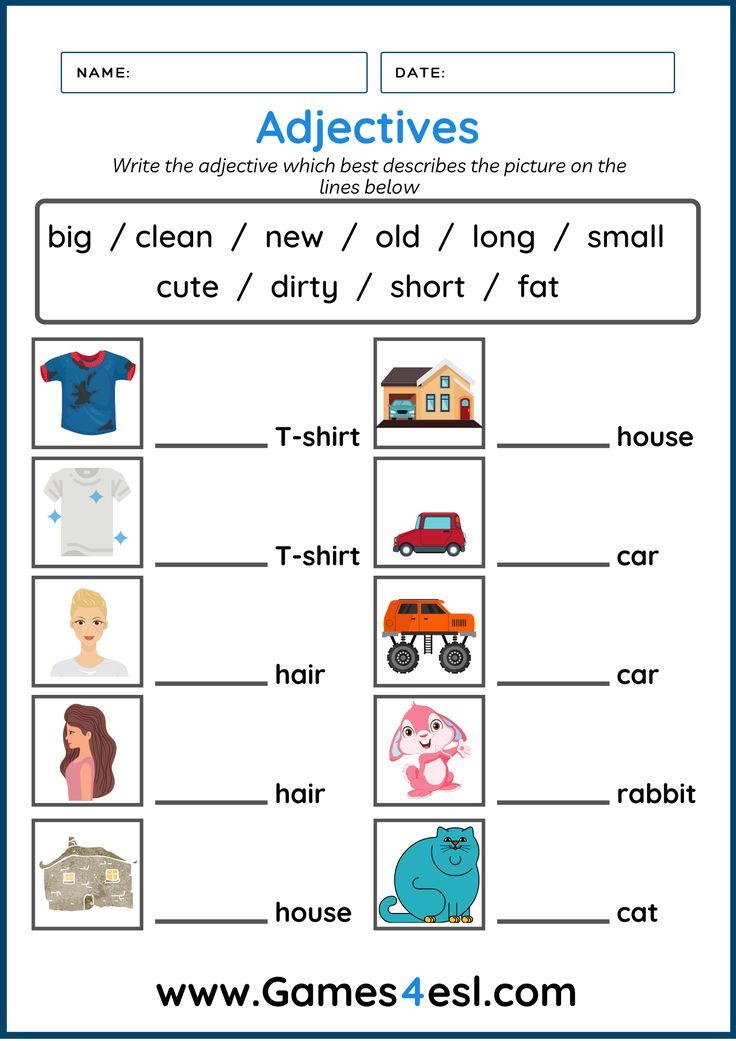
Advertisement
4. Describe My Outfit
Ask each student to bring in a photo of themselves from home. Alternatively, they can draw a picture of what they are wearing that day. Then, students can write a paragraph describing what they are wearing using as many descriptive adjectives as possible.
Advantages of this approach include:
- This game will get them out of the rut of describing their clothes as "pretty" and "nice" - the two adjectives teachers hear far too often!
- Encourage students to avoid using the word “very” in their descriptions. Instead of saying their dress is “very bright,” they may describe it as “vivid” or “vibrant.”
- If you make sure that your students describe themselves in a positive way, you will also encourage them to develop their sense of self-esteem.
5. Musical Adjective Games
Get each student to suggest a favorite song; tell them to write down the singer and song title so you can find it easily and play it in class.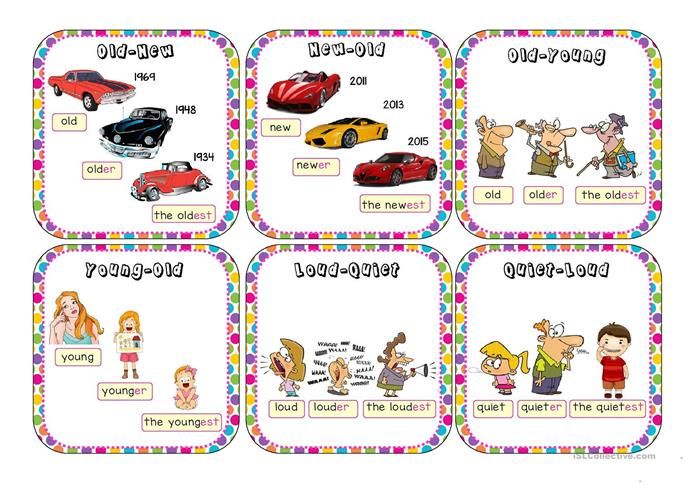 Before playing the game, check if the song is appropriate for the classroom, listening for inappropriate themes or language.
Before playing the game, check if the song is appropriate for the classroom, listening for inappropriate themes or language.
Ask the students to describe the music aloud with lots of adjectives - loud, quiet, happy, sad, fast, slow. Even more creative adjectives, such as scary, smooth, and silly, can be used too. Encourage your students to listen creatively!
Variations on this musical word game include:
- Search for a song you know on YouTube that has a lot of adjectives in the lyrics. Then, ask students to write down as many adjectives as they can hear, or get them to raise their hand each time they hear an adjective.
- Another option is to have them stand up and sit down each time they hear an adjective, like when singing "My Bonnie Lies Over the Ocean."
Advertisement
6. What's That Smell?
Each student can get a chance at playing the game as other students watch and play along. In several plastic containers, put a small amount of fragrant objects that might be familiar smells to your students.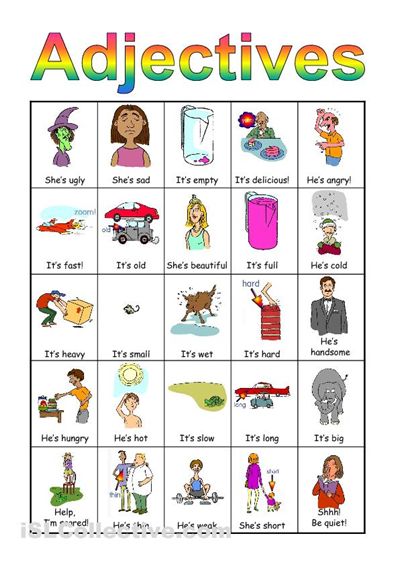
Some object ideas you might consider include:
- Apple slice
- Cheddar cheese
- Mint leaves
- Chocolate
- Rose petals
Blindfold the student and tell them to smell the contents of the jar. Then, ask them to focus on their sense of smell and describe the object with as many adjectives as possible.
7. Word Search
Word searches are a great example of adjective games for adults; it’s not only children who can pass the time with this activity.
An adjective word search empowers students to learn new adjectives and reinforce old ones. An online word search is a fun activity for students to work on in their own time, but a word search can also be done in class; groups of students can help each other to complete it.
Print out our Adjective Word Search below for some classroom fun today!
View & Download PDF
Advertisement
Tips on Selecting Adjective Games
When choosing adjective games to play in the classroom, make sure they are centered around correct grammar usage, building vocabulary, and boosting creative skills.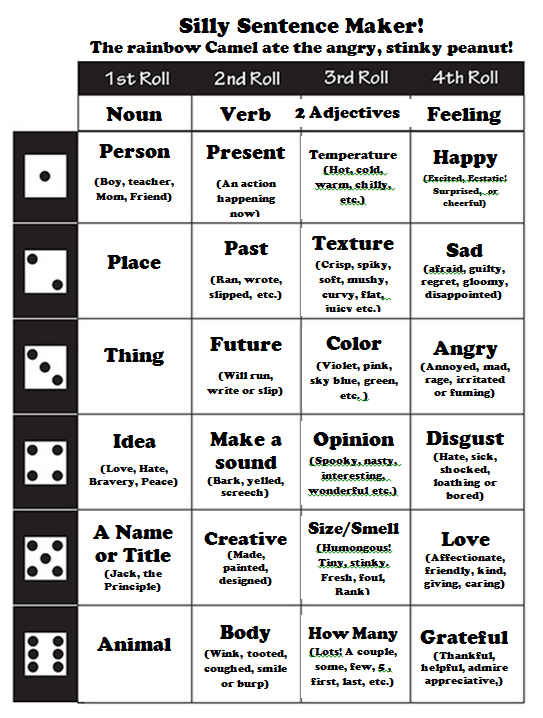 Students do not need to know the technical aspects that they are learning through games: in fact, the best games are the most fun and stimulating ones.
Students do not need to know the technical aspects that they are learning through games: in fact, the best games are the most fun and stimulating ones.
Adjective Experts
If nouns are one of the most important parts of speech in the English language, then adjectives are pretty spectacular, too. After you play these games and review these modifiers with your students, use this adjective quiz to test their knowledge. And, as a curveball on a Friday afternoon, you can also review these Latin Adjectives in Current Use to broaden your students’ vocabulary even further.
Staff Writer
Game-competition "Visiting an Adjectival artist" (6th grade)
Purpose: increasing students' interest in learning the native language.
Tasks:
- test the student's knowledge on the topic "Name adjective as a part of speech”;
- promote the activation of mental student activities; develop intellect, attention, memory, imagination;
- create conditions for fostering love for one's native language fostering a sense of camaraderie, mutual assistance, responsibility.
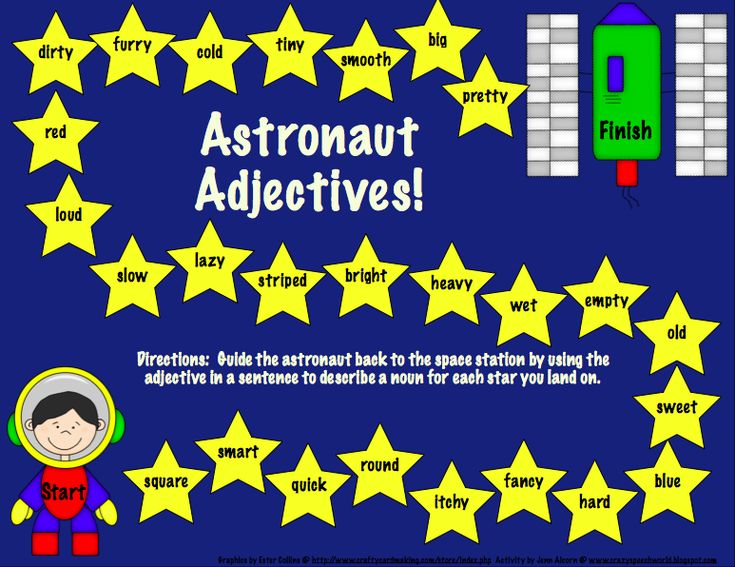
Room decoration: in different parts slogans are placed in the study room:
- Part of speech adjective - very fascinating.
- Humor and laughter are the key to success.
- To teach is to sharpen the mind.
- It is better to stumble with your foot than with your tongue.
- Think slowly - you will answer successfully.
Event preparation:
- Write a letter to the competition "Culinary", seal in an envelope.
- To the competition "Dreamers" for each captain on write a story on a separate piece of paper.
- Prepare six boxes and cards with words for the competition "Distributed"
- Prepare in advance a student who will play the role of Vitya Ivanov.
- Prepare prizes for the winners.
- Prepare tokens, blank sheets of paper.
- Prepare a cake design
PROGRESS OF THE EVENT
Moderator: Good afternoon, dear girls and boys! Today we have a fun meeting, and I I am sure that it will be interesting, and most importantly - instructive.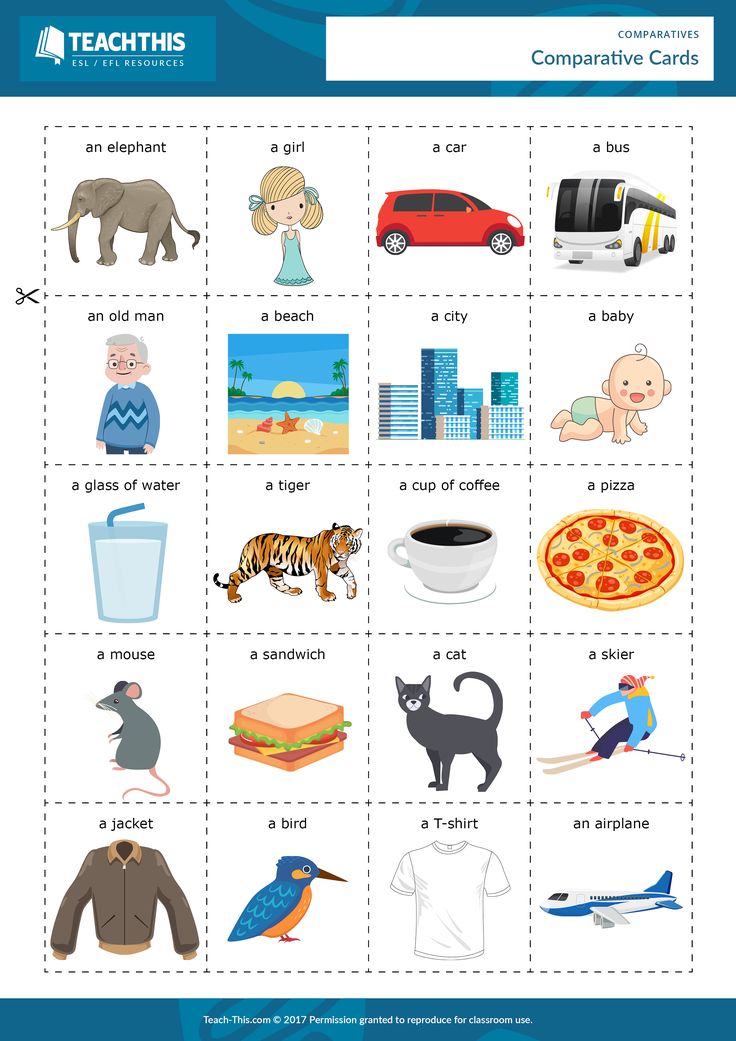 We'll repeat what we know, uh Maybe we'll make new discoveries. We are going to long journey to visit the name adjective. The path ahead of us is not easy, the road will meet various obstacles, difficulties, but we must overcome everything, therefore we will take on the road knowledge, skills, and most importantly - good mood. And to make it even better do as i do:
We'll repeat what we know, uh Maybe we'll make new discoveries. We are going to long journey to visit the name adjective. The path ahead of us is not easy, the road will meet various obstacles, difficulties, but we must overcome everything, therefore we will take on the road knowledge, skills, and most importantly - good mood. And to make it even better do as i do:
Come on, clap like me!
Come on, all together, all at once!
So they clap only with us!
So they clap only with us!
Come on, stomp like me!
Come on, all together, all at once!
So they stomp only with us!
So they stomp only with us!
Come on, say, “Ha ha!”
Well, all together all at once!
Laugh so only with us!
Laugh so only with us!
- And now we welcome our teams who today and will compete with each other. We wish them good luck.
(Teams take turns introducing themselves)
Host: Meet the girls team "Merry", which will fight under motto:
We are "Merry" together
We'll get through whatever it takes!
Laughter, fun and play -
Our companions always!
Presenter: And here are the rivals "Merry" - a team of boys "Interesting". Their motto:
Their motto:
Everything in the world is interesting.
We all want to know around.
And with special interest,
We are ready to win!
Moderator: Thank you very nice to see you teams in such a cheerful mood.
Let there be a joyful meeting.
In such an acquaintance, friendship is the essence.
We start our meeting,
As they say: "Good luck"!
- In the city named after the Adjective, the circle is bright, everything is colorful, the mistress of the city is an artist, here she works all day long, decorating everything.
Oh, look what you can see there, but how smells delicious, It's a cake,
now we will drink tea, but no, wait, here some note (unfolds the note and reads aloud) :
Dear guys!
I was in a hurry and did not have time to decorate cake. Name what kind of cake? And than the more varied you decorate it, the more it will be tastier.
I wish you good luck and bon appetit!
See you, adjective.
"Culinary" competition
Match the word "cake" as much as possible adjectives.
Teams alternately name the signs of the object, and the team that will call the last definitive word for sweet cake, ta and won. (The winning team is given token).
Presenter: What a delicious cake, our chefs, and we refreshed ourselves, but we won’t be long linger because the road is long, let's hit the road.
Here is the second obstacle on the way - you need to solve morphological charades, but not forget that we are visiting the name Adjective, encrypted words must be adjectives.
Guessing Day contest
Charades are made to the teams in turn, if one command does not give the correct answer, fans can help them. For every correct the answer is token.
1. Suffixes taken from the word "significant",
The root of the word "crowded",
Prefix and ending - from the word "exceptional". (Executive)
(Executive)
2. Look for the suffix and ending in the word “patient”,
Prefix - in the word "write out",
The root is in the word "to present". (Hardy)
3. The root of the word "greeting",
Prefix from the word "excellent student",
Suffix and ending - from the word "frank". (Responsible)
4. Suffix and ending are the same as in the word "iron",
The prefix is the same as in the word "arrival",
The root is the same as in the word "subject". (Diligent)
Host: I'm glad the team is doing well know parts of the word, and now it's time check the captains, whether you can rely on them in Hard time.
Captains competition
1 task : Give as complete an answer as possible with examples per question.
Question to the captain of the Cheerful team - Define the name of the adjective
Question to the captain of the "Interesting" team - How does the adjective change?
(A token is awarded for the most complete answer).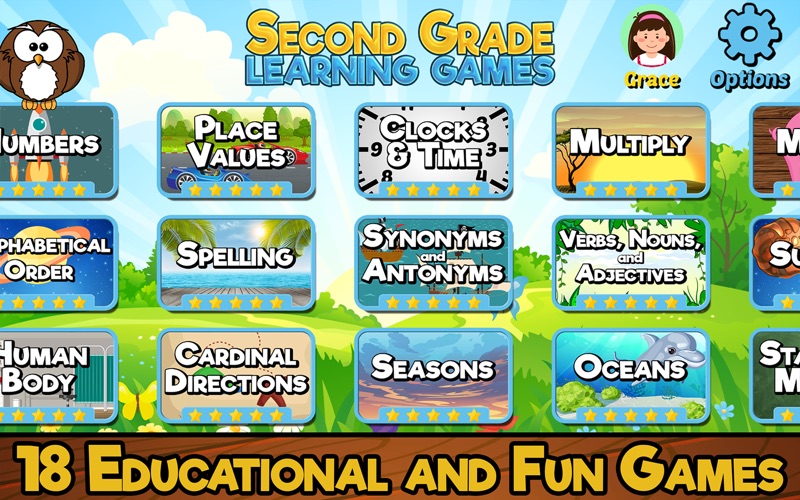
Task 2 :
Host: Residents called me yesterday one of the planets and with a special sadness in his voice reported that all adjectives ran away from them. A dark night has fallen on the planet, help captains return adjectives. Do you need to sheets with a fairy tale instead of ellipsis write adjectives, the fairy tale of that captain will win, in which will be used more adjectives. At the checkpoint there may be several definitions.
Fairy tale
On the … planet lived … little men, they had … eyes, ... hair and ... ears. But very ... character. The houses of the inhabitants of the planet were with ... roofs. Near of each dwelling sat ... a dog. Doggies on this ... the planet was instead of chickens, because ... houses guarded by ... dragons and ... ostriches. They sat on ... ropes and growled. On ... trees they sang ... songs ... flies. In ... the forests were found ... baby elephants, .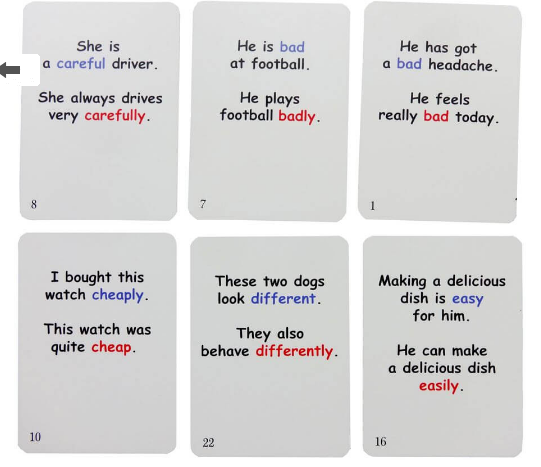 .. chickens, ... hedgehogs and ... lizards. And on ... turtles The people went to visit each other. … life was at
.. chickens, ... hedgehogs and ... lizards. And on ... turtles The people went to visit each other. … life was at
planet.
Host: In the meantime, the captains are busy writing, we have no time to rest, the next competition "Auction of knowledge". The task of the commands is to specify signs of an adjective in the sentence "Beautiful forest in winter! Which team will call the last sign (general value, morphological signs, syntactic role in the sentence) this word, she wins. (To the winning team issued a token).
Master: And now let's listen to the captains competition "Dreamers". How did the captains decorate planet and saved the inhabitants of (captains read fairy tales) .
Host: And we continue our journey.
"Extra Fourth" competition
Two teams from each team will come to the board human and under dictation will write down four words. You need to read them carefully and explain why one of the four words is superfluous.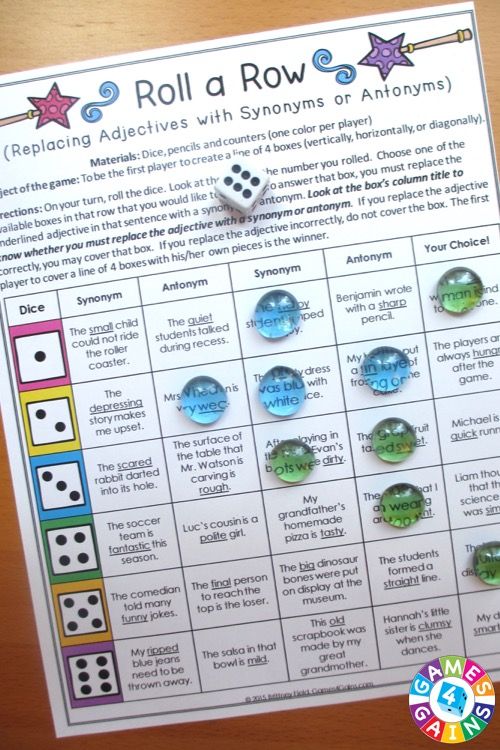
1. Wood 2. Good 3. Best big 4. Tasty
stone small more beautiful cute
beautiful burning minute stupid
rubber mighty less silly fresh
(For each correct answer, the team receives a token).
Presenter: Well done, you can find something extra, I see nothing bothers you, but now visible outskirts of the city. Well, listen, hear some sounds, someone is crying. (Sits on a chair the boy is crying).
– Why are you crying, boy?
Boy: My name is Vitya Ivanov. And with I got in trouble, listen:
My familiar old day
He was a distinguished linguist.
There are a lot of different words
My grandfather kept it in a box.
Adjectives - in bulk!
The old man loved them very much.
Once we played with Bulka,
Once the boxes fell.
We are terribly confused,
Because they saw,
How the words got mixed up.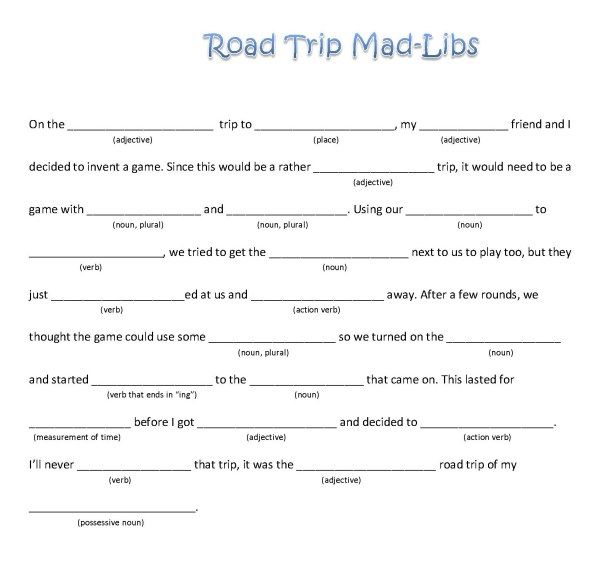
And they sob. Beat for pity!
What was left for me to do?
I picked up the boxes,
How could he collect the words.
And there is no one to help me, tell me if it is right I distributed adjectives. They are were in three boxes, under the names: qualitative, relative, possessive. Here list of adjectives that crumbled.
Distribution competition
Each team is given three boxes and adjective cards different ranks. The words need to be sorted boxes. The main thing is correct and fast do. ( For each correct answer, a token).
Words: courtier, tomorrow, fox (tail), forest, beautiful, fresh, February, bearish (fur coat collar), ancient, good, evil, straw, amber, cheerful, spring, strong, hare (brood), young, mother's, complex, blue, camel (hump), New Year.
Narrator: That's how many good things you guys did today. And our The journey is unfortunately coming to an end.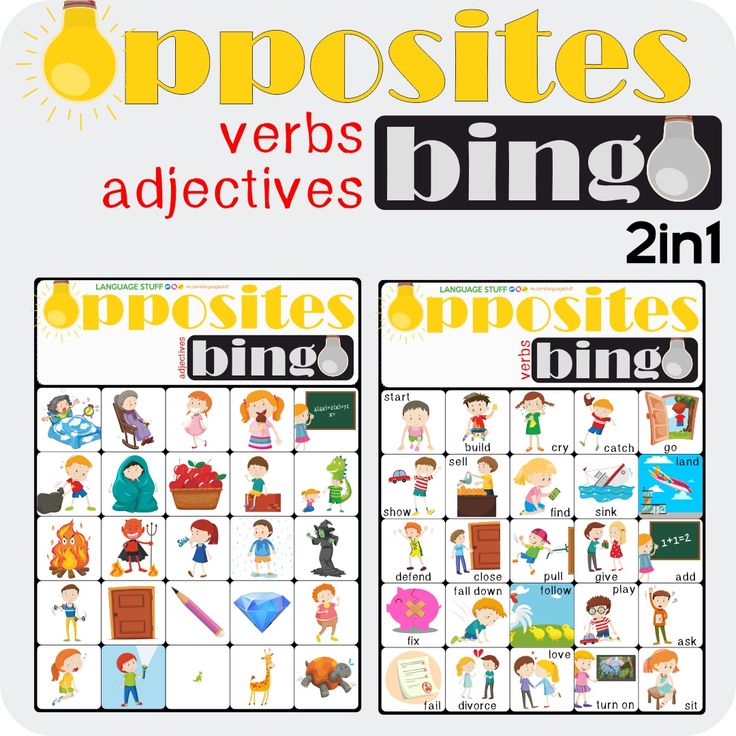 Nose we do not say goodbye with the name of the adjective, because that she will meet us where we want to express his thought figuratively, expressively, colorfully. Without everything around her becomes gloomy and boring. You gloriously worked hard, and remembered a lot from passed material. But who turned out the strongest? (Tokens counting, winners are awarded prizes).
Nose we do not say goodbye with the name of the adjective, because that she will meet us where we want to express his thought figuratively, expressively, colorfully. Without everything around her becomes gloomy and boring. You gloriously worked hard, and remembered a lot from passed material. But who turned out the strongest? (Tokens counting, winners are awarded prizes).
Fun games | MAOU secondary school No. 7
Adjectives in the VI class.
What kind?
I am preparing 2 sets of cards for the game. Set A cards contain one noun, set B cards contain 3 adjectives. The class is divided into 2 groups. Team B reads the adjectives in turn, team A names a suitable noun.
| A | B |
| River
| Long, fast, clean |
| Mother
| Kind, helpful, caring |
|
Friend
| Loyal, sociable, considerate |
| nose
| Turned-up, long, straight |
| Mouse
| Grey, shy, small |
| Hair
| Wavy, dark, short |
| Weather
| Awful, cold, lovely |
| Book
| Interesting, expensive, modern |
"Word chain"
How many adjectives can you find in the wordcircle?
Write them inside the balloon.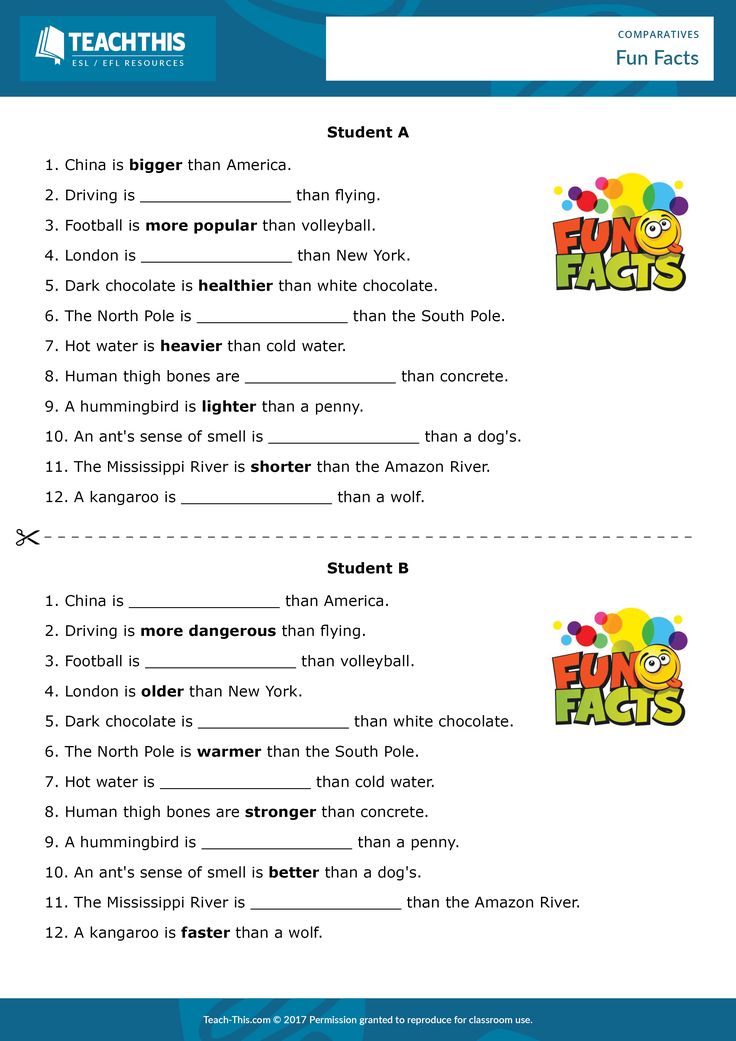
(expensivexitingoodlookingreeneaturneduprettyoungreenewoolenaturalargexcellentallongreyellowise - around the edges of the ball, inside the ball - gaps for words - .... .... ... ... ..... ......)
adjective comparisons
- to develop students' speech and creative activity
"The Pyramid"
Can you fit together this pyramid?
The teacher assembles a pyramid by mixing up sizes and colors. The children have to build a pyramid using the sentences:
The red ring is bigger than the green one, so the green one must go after the red one.
The blue ring is smaller than the yellow one, it must go between the red and green ones.
The brown ring is the biggest – it must be at the bottom.
The black ring is the smallest – it must be at the top.
"Twenty Questions"
The facilitator thinks of an object or person (for example, a student of this class), the rest of the students, asking general questions, must guess it:
Is he (she) taller than me?
Is his hair longer than mine?
Does he run faster than Nick?
Does he study better than me?
Spelling games
Unscramble the Words
Match the adjectives in the box and in the circle
Inside - nith, awrm, usyb, agelr, wsol, verba, atf
Outside - brave thin fat large warm slow busy
What is there in the Bag?
Children, I was in the shop and bought many things.